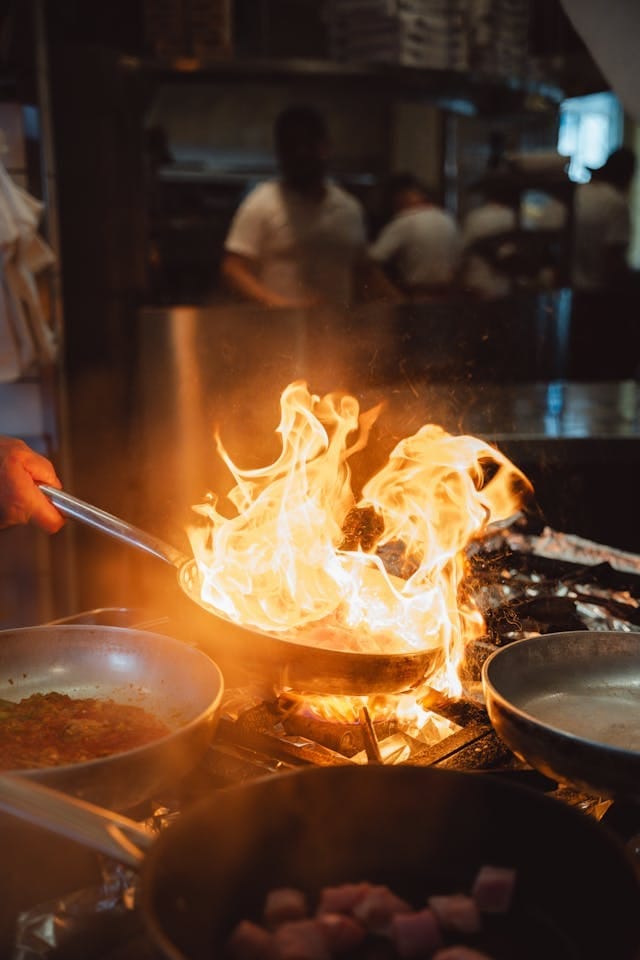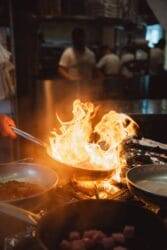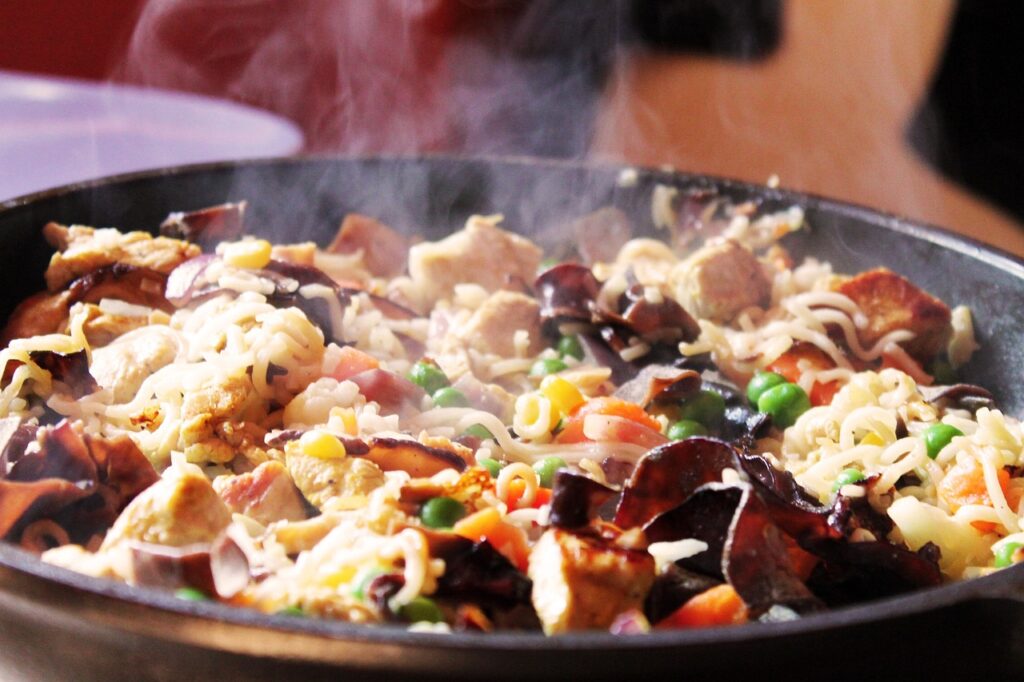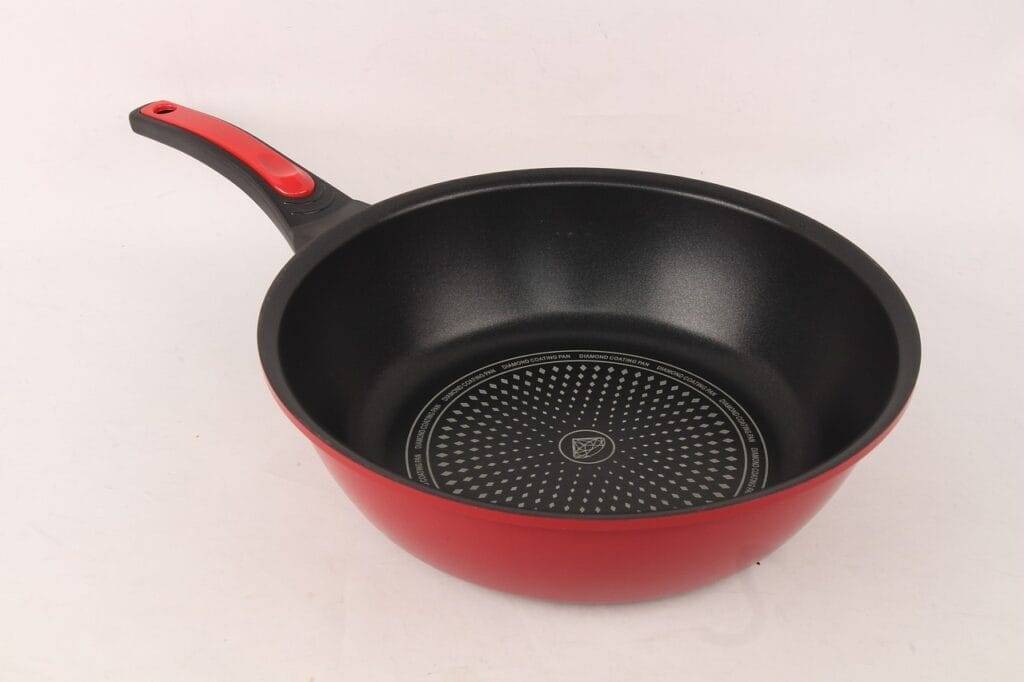How To Remove Burnt-on Food In The Frying Pan?

Have you ever faced the frustration of seeing burnt-on food stuck to your frying pan? It can feel like a daunting task to clean it, especially if you’re not sure where to start. You’re not alone in this challenge, and it’s something that many home cooks encounter. But fear not! You can tackle that stubborn residue and restore your frying pan to its former glory with the right techniques and a bit of elbow grease. Let’s get into it!

Understanding Burnt-on Food
What Causes Burnt-on Food?
Burnt-on food typically occurs when items get too hot during cooking. This high temperature can lead to the food adhering to the surface of your frying pan, forming a stubborn residue. Different types of cookware can react differently to heat, and not all materials are equally forgiving when it comes to cleaning.
Types of Frying Pans
It’s important to understand the type of frying pan you’re working with because techniques can vary. Here’s a quick overview:
| Type of Frying Pan | Characteristics |
|---|---|
| Stainless Steel | Durable and non-reactive but prone to sticking |
| Nonstick | Designed to prevent sticking, but can lose that ability over time |
| Cast Iron | Requires seasoning and proper care; can rust if not dried properly |
| Copper | Great heat conductivity but requires special care due to tarnishing |
Knowing the type of frying pan you’re using will help you choose the best cleaning method.
Preparing for Cleaning
Gather Your Supplies
Before you start, it’s a good idea to gather your cleaning supplies. Having everything ready will make the process smoother. Here’s a basic list of what you might need:
- Baking soda
- White vinegar
- Dish soap
- Water
- Scrub brush or sponge
- Towels
Safety First!
Always ensure that the frying pan is cool before attempting to clean it. If it’s still hot, you risk burns or damaging the pan further. Also, check if your frying pan is dishwasher safe if you’re considering that as an option.
Methods for Removing Burnt-on Food
Soaking the Pan
One of the most straightforward methods to tackle burnt-on food is soaking your frying pan in hot, soapy water. This process can help loosen the stuck food particles, making them easier to remove.
- Fill your sink or a basin with hot water and add a few drops of dish soap.
- Submerge your frying pan and let it soak for at least 30 minutes.
- After soaking, use a sponge or scrub brush to gently scrub the residue away.
If the food remains stubborn, you can try the following methods.
Baking Soda Paste
Baking soda is an excellent natural cleaner, and it works wonders on burnt-on food. Here’s how you can make and use a baking soda paste:
- Create the Paste: In a small bowl, mix equal parts of baking soda and water to form a thick paste.
- Apply the Paste: Spread the paste over the burnt areas of the frying pan.
- Let It Sit: Allow the paste to sit for about 15-30 minutes. This will give the baking soda time to break down the burnt food.
- Scrub and Rinse: After time is up, scrub with a sponge or scrub brush and rinse thoroughly with warm water.
Vinegar and Baking Soda Combo
For tougher burnt-on food that won’t budge, combining vinegar and baking soda can create a powerful cleaning reaction.
- Pour Vinegar: Add enough white vinegar to cover the burnt areas of the frying pan.
- Add Baking Soda: Once the vinegar is in, sprinkle a generous amount of baking soda over the top. Watch as it fizzes!
- Let It Sit: Allow this mixture to work for around 10-15 minutes.
- Scrub: After the fizzing stops, use a scrub brush to tackle the burnt food until it lifts away.
- Rinse: Rinse with warm water and dry thoroughly.
Salt Scrubbing
If you need a little more scrubbing power, consider using coarse salt as an abrasive cleaner. Here’s how to do it:
- Sprinkle Salt: Generously sprinkle coarse salt over the burnt areas of your pan.
- Scrub: Use a damp sponge or cloth to scrub the salt into the burnt food.
- Rinse: Once the food is lifted, rinse the pan with warm water.
Boiling Water Method
For particularly stubborn burns, boiling water can help loosen the residue.
- Fill the Pan: Fill the frying pan with water, leaving enough space to prevent overflow.
- Add Vinegar: Add a splash of vinegar to the water to enhance its cleaning properties.
- Boil: Place the pan on the stove and bring the water to a boil. Allow it to boil for a few minutes.
- Cool and Scrub: After boiling, turn off the heat and let the water cool slightly. Then, use a scrub brush to wipe away the loosened burnt food.
Alternative Cleaning Agents
Commercial Cleaners
If you prefer store-bought solutions, there are many commercial cleaners designed for tough cleaning jobs. Look for products specifically meant for cookware. Always read the instructions and ensure that the cleaner is safe for your frying pan material.
Lemon Juice
Lemon juice is not only great in recipes, but it can also work wonders in cleaning. Its acidity can help break down burnt-on food.
- Squeeze Lemon Juice: Pour fresh lemon juice over the burnt areas of your frying pan.
- Let It Sit: Allow it to rest for about 10 minutes.
- Scrub and Rinse: Afterward, scrub and rinse with warm water.

Preventing Burnt-on Food in the Future
Proper Cooking Techniques
One way to avoid burnt-on food in your frying pan is by using proper cooking techniques. Here are some tips to keep in mind:
- Monitor Temperature: Cooking at too high a temperature can lead to food sticking. Adjust the heat to avoid scorching.
- Use Enough Oil: Ensuring there is enough oil or fat in the pan can create a barrier between the food and the surface.
- Preheat the Pan: Allowing the frying pan to preheat before adding food can help in achieving a good sear without sticking.
Regular Maintenance
Taking care of your frying pan will extend its life and maintain its non-stick properties. Regular cleaning and seasoning (for cast iron) can make a remarkable difference. Here are some maintenance tips:
- Clean Promptly: Clean your frying pan soon after use to avoid letting food harden and become a challenge to clean later.
- Avoid Metal Utensils: Using metal utensils can scratch nonstick surfaces, making them more prone to sticking in the future. Opt for silicone or wood utensils instead.
- Season Properly: For cast iron pans, maintaining the seasoning is crucial. After cleaning, dry the pan thoroughly and apply a light coat of oil to maintain the seasoning.
Final Thoughts
Cleaning burnt-on food from your frying pan may seem intimidating, but with the right methods and a little effort, it can be done effortlessly. Don’t hesitate to try a few different techniques to find what works best for you. Remember, prevention is the best cure—implementing proper cooking techniques and maintaining your cookware will help to keep those burns at bay. Happy cooking, and enjoy your beautifully clean frying pans!

